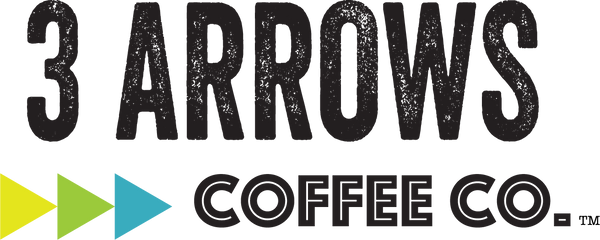Are our coffee beans mold free?
We know this is a topic of interest for quite a few of our clients, so we put together this information to help answer the question on whether to expect mold in our coffee products.
As an organic material with a moisture content, coffee beans can have yeasts and molds, and some of those molds can produce mycotoxins that can be harmful to your health. At 3 Arrows Coffee Company, all our coffee is supplied by Café Imports, where ensuring mold-free beans is a priority.
Mold is almost everywhere in the form of spores throughout the air, but these spores do not pose a problem unless they find the right environment to grow and multiply. One key to mold growth is water activity (Aw), which is simply the amount of water available to microorganisms within a given substance, such as a coffee bean. Without sufficient water, mold cannot proliferate, and mycotoxins, including ochratoxin, will not be produced.
Most microorganisms require water activity levels above 0.7000 Aw. Fewer than 10 out of 25,000-30,000 of Cafe Imports coffee samples measured in the last 5 or 6 years have been at or above this level. The average measurement is 0.5500, with some Decafs and Wet Hulleds topping out under 0.65, and the majority less than 0.60. At these rates coffee is highly unlikely to support any microbial growth. Even our lowest grade coffees are within the mold-free range of water activity levels.
Additional environmental conditions must also be met and maintained for mold to survive and produce mycotoxins. The careful handling and processing techniques used in specialty coffees ensure that these conditions are not present. For this reason, the vast majority of high-end coffee does not contain detectable amounts of mold or mycotoxins. This includes all of the coffees offered at Three Arrows.
To verify this, a test was run on one of the higher-Aw beans that our importer handles, a standard Sumatran coffee. No molds or mycotoxins were detected. Because our coffee processing consistently maintains unfavorable conditions for mold proliferation, it is unnecessary to run frequent testing for it.
A further step in protecting our coffee is the use of GrainPro packaging, which is the gold standard in storage solutions for agricultural commodities.
From bean selection to processing practices to storage materials, specialty coffees travel a very different path from commodity coffees, which can indeed harbor harmful microorganisms. By choosing Three Arrows Coffees you can feel confident that every precaution has been taken to ensure its high quality.

